COVID19 Social Enterprise Response and Visioning Effort (SERVE) Asia
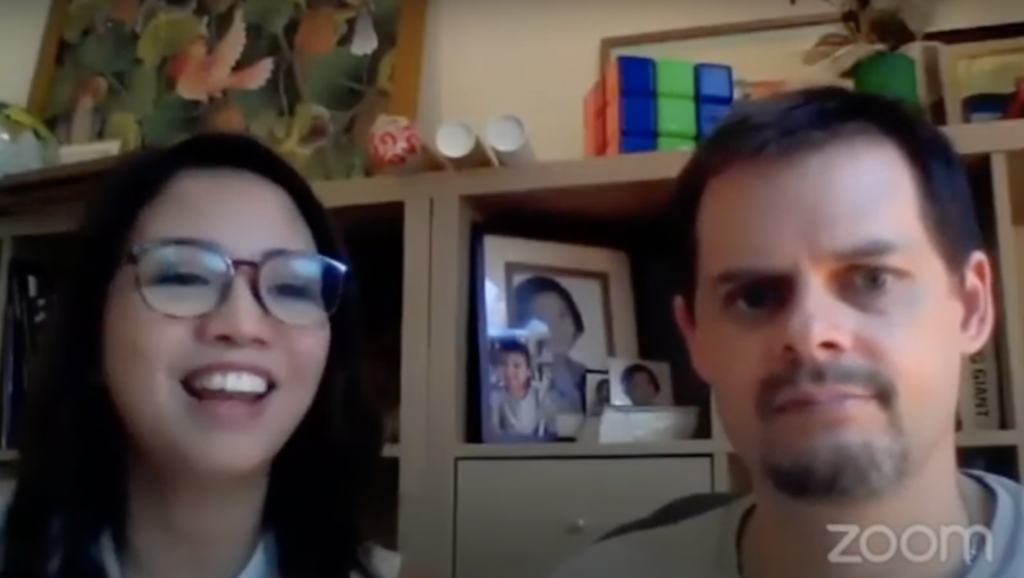
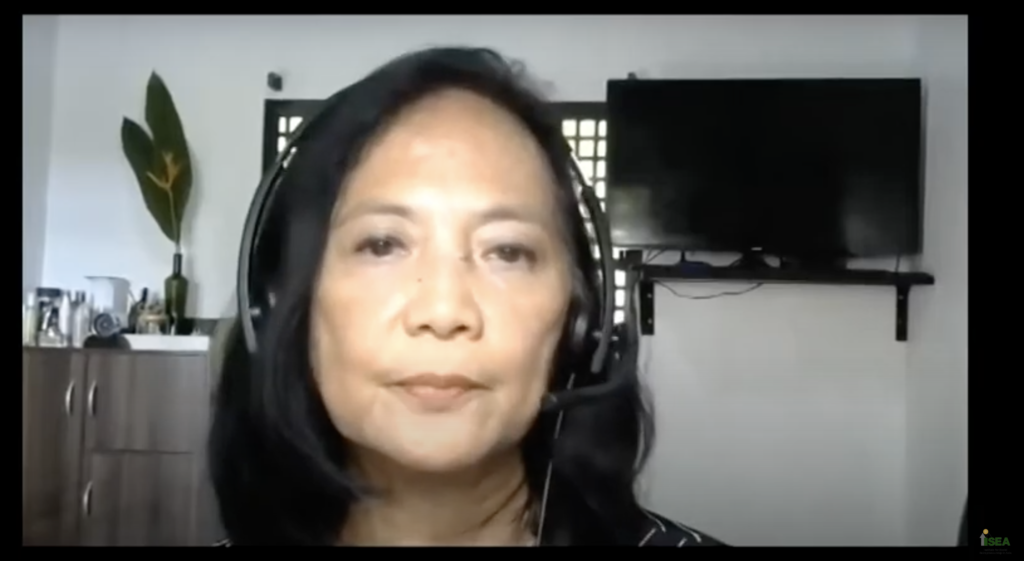
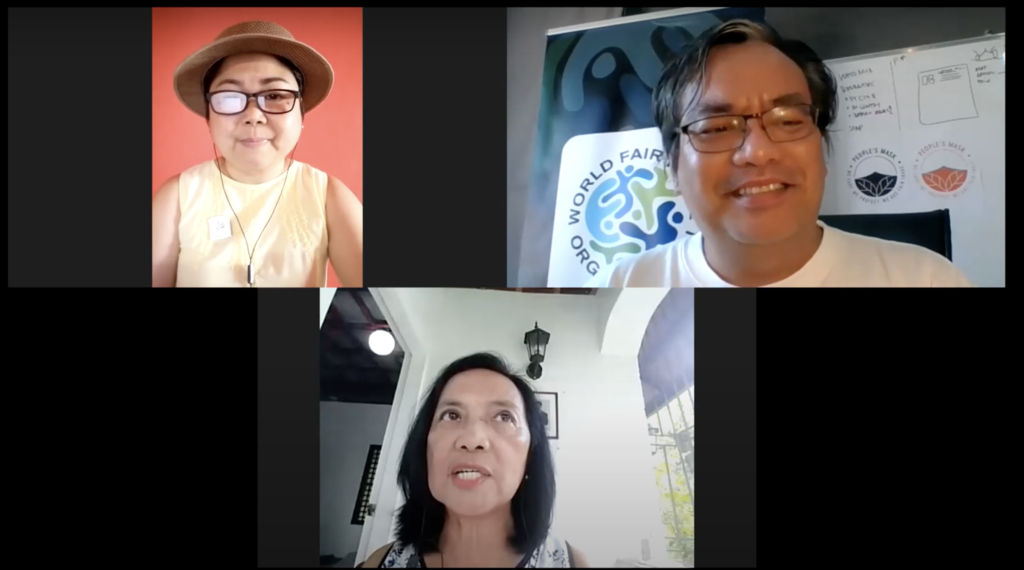
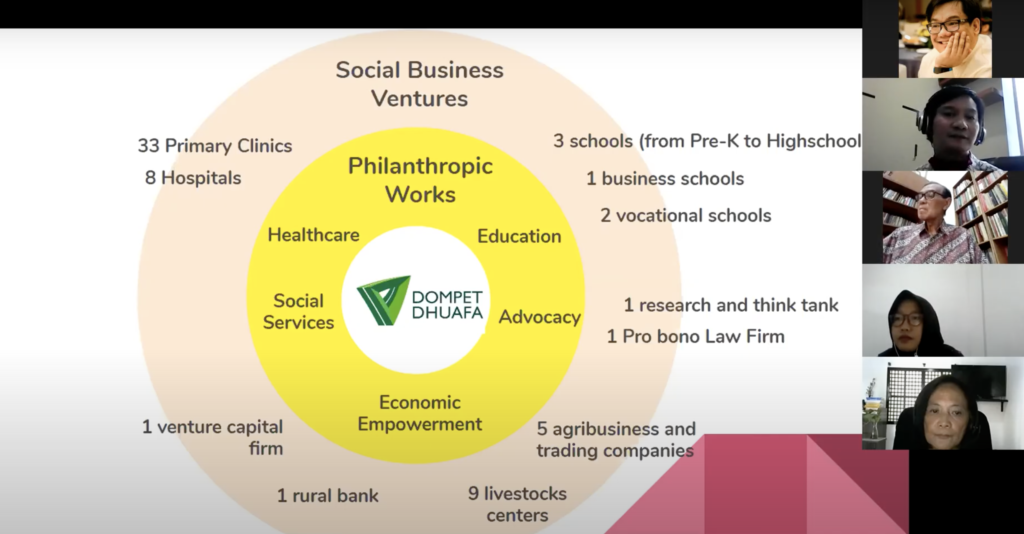
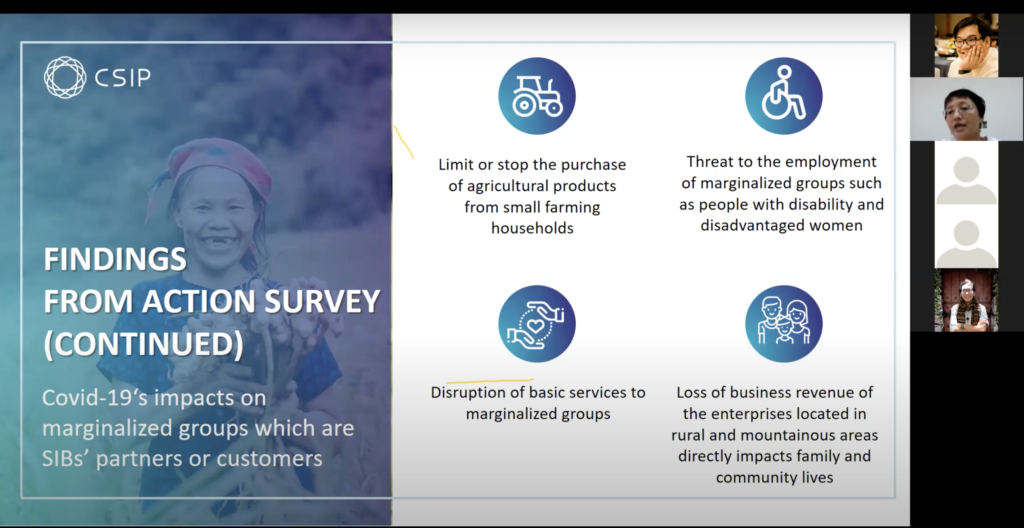
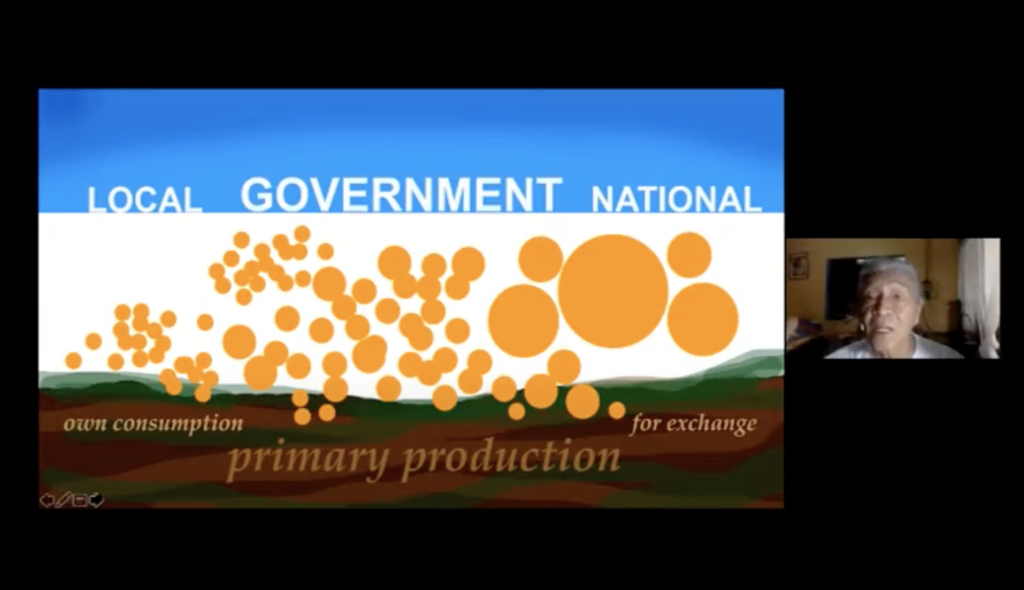
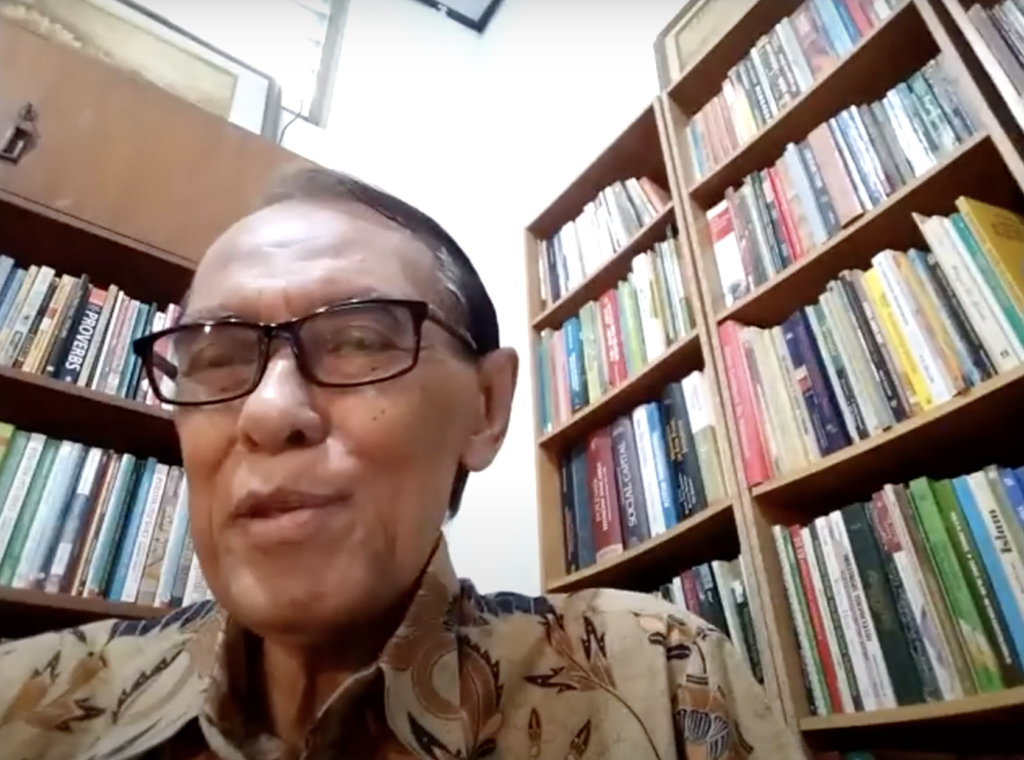
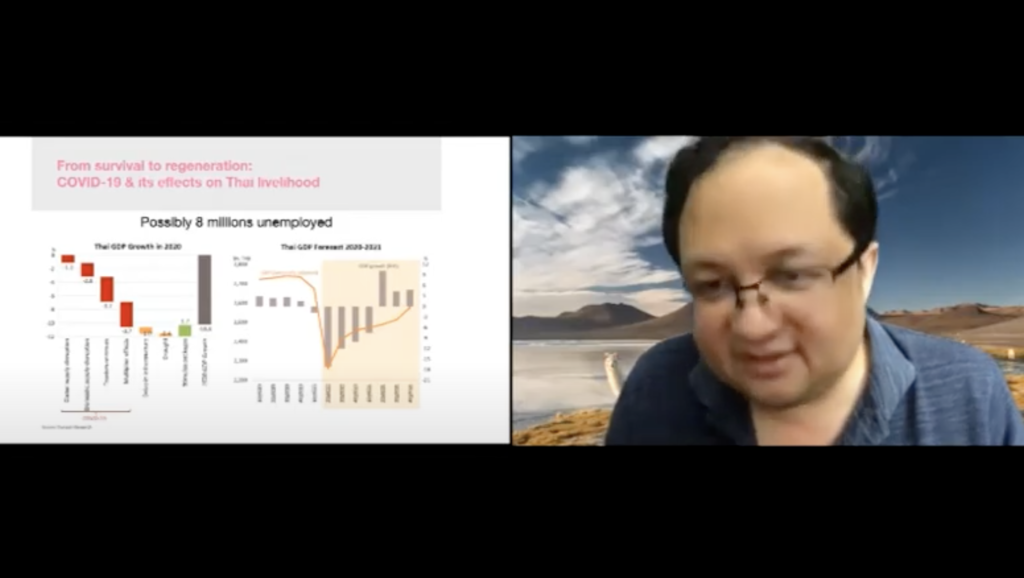
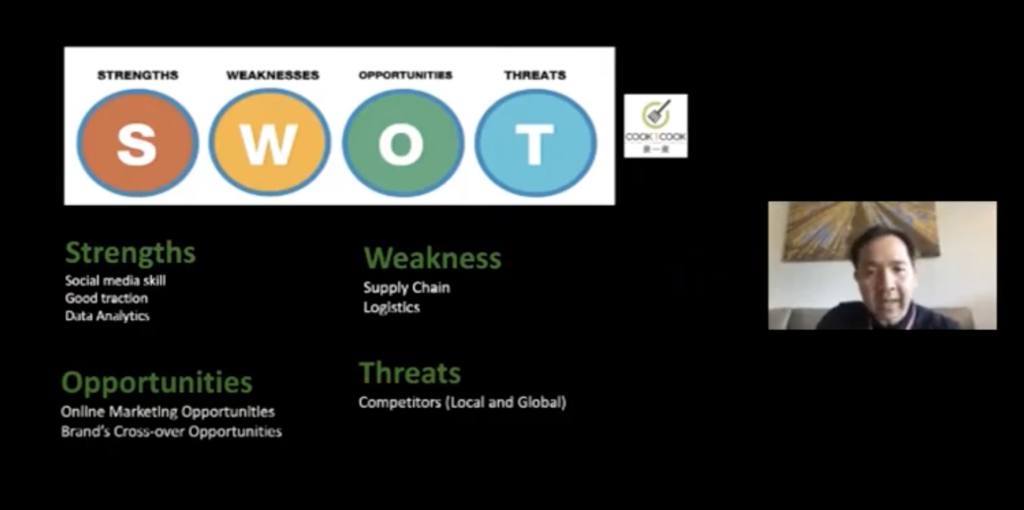
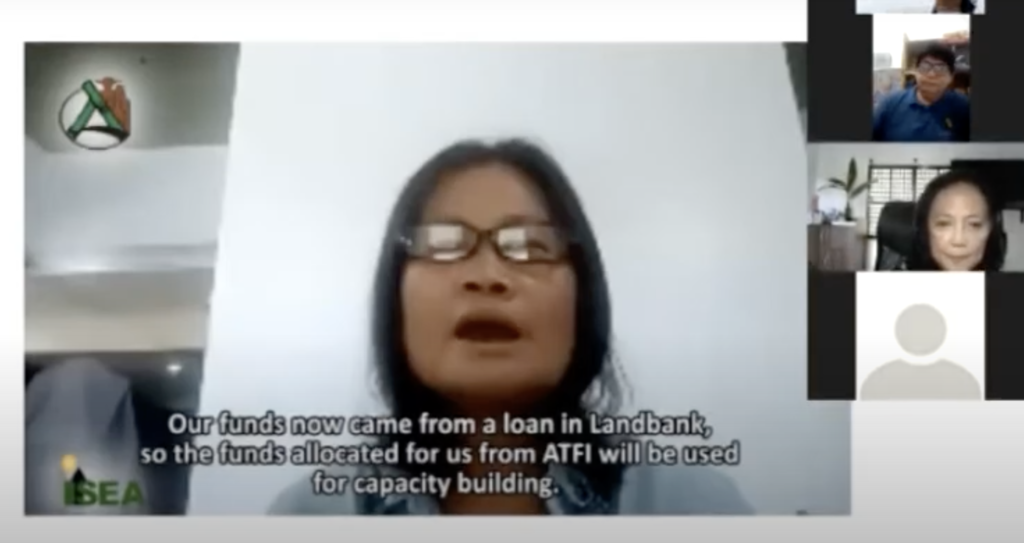
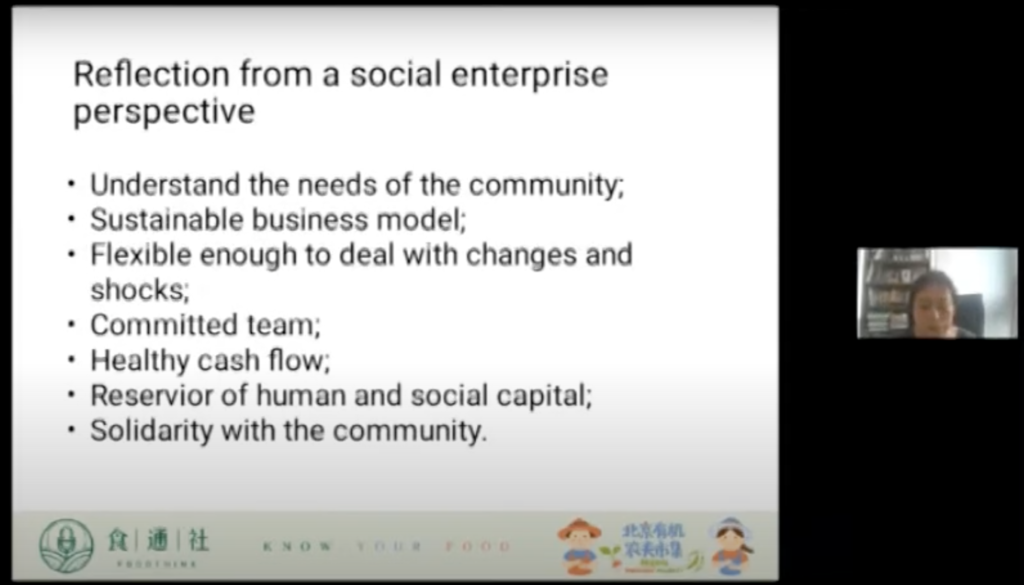
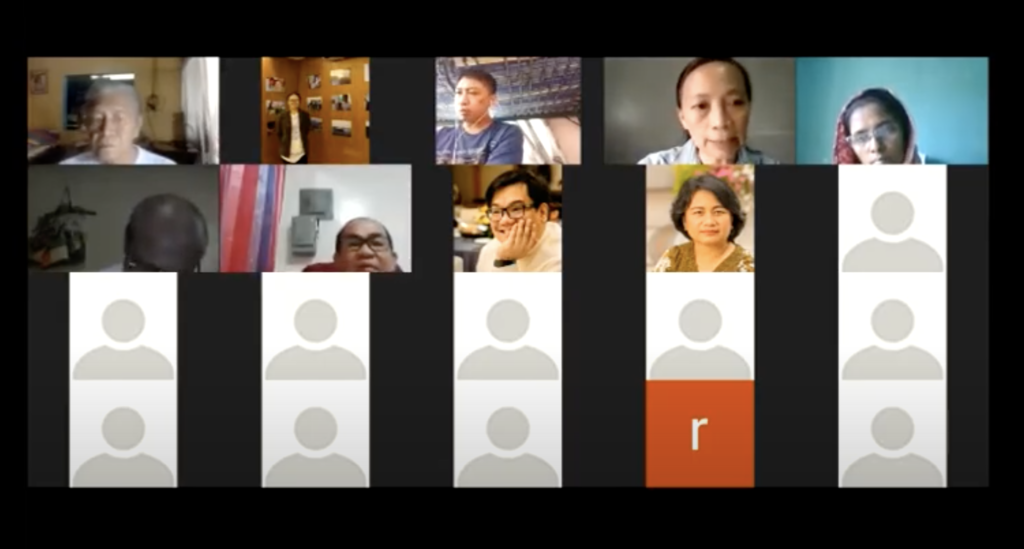
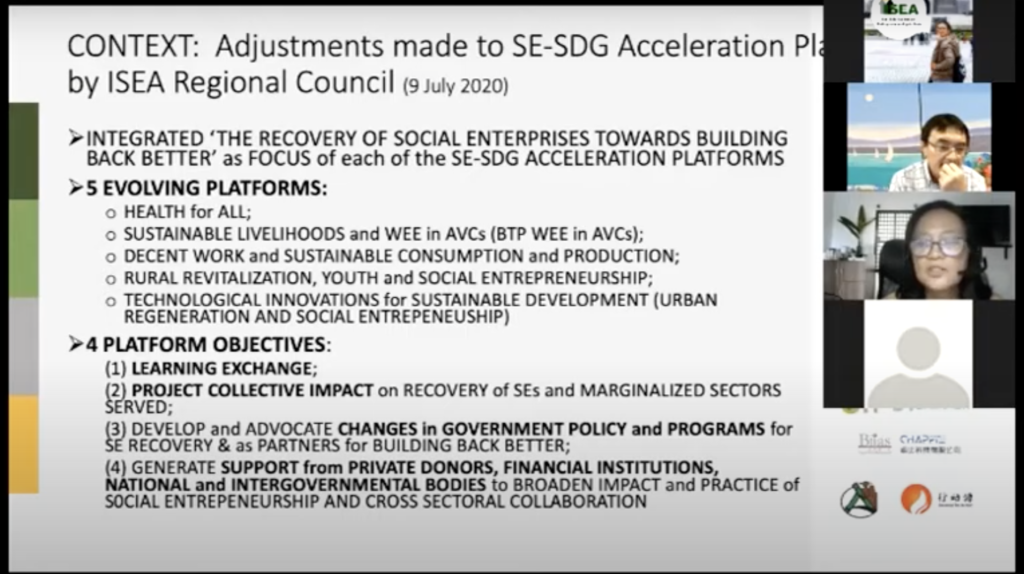
A grim forecast was already made by the United Nations Economic and Social Commission for Asia and the Pacific (UNESCAP) that the region will not achieve any of the Sustainable Development Goals by 2030 even before the COVID19 health pandemic. With the health pandemic, one can expect an even grimmer forecast by the end of 2020.
A major reason for the grim forecast was the development paradox of high poverty and inequality despite economic growth. With an economic recession being forecasted, it will be the poor and marginalized sectors that would suffer the most.
Social enterprises face the difficult situation of serving marginalized sectors that are being hit the most by this pandemic. As social mission driven enterprises, the poor these social enterprises engage as workers, suppliers, clients, co-owners and partners include small farmers, backyard livestock raisers, agricultural workers, fishers, indigenous communities, informal settlers, crafts communities, the enterprising and entrepreneurial poor, migrant workers, persons with disability and the women of these sectors.
Initial Social Enterprise Perspectives and Responses to the COVID19 Pandemic:
Social enterprise responses to the COVID19 pandemic encompass a wide range of initiatives. Many are doing their share in undertaking relief operations to stem the hunger among their stakeholders and partner communities as exemplified by Human Nature’s Goodness Rising in the Philippines. Beyond this, social enterprises and their partner resource institutions are providing inspiration and hope, transforming threats into opportunities and introducing innovative measures and pathways towards building back better at various levels.
- Dompet Dhuafa in Indonesia that had established a network of social enterprise hospitals serving the poor with a community-based primary health care program, has been in the forefront of providing free access to COVID19 pre-screening, rapid testing and hospital care among the poor; building temporary care facilities to increase the capacity of their hospitals; and setting up hand wash stations in public places to support information and education campaigns preventing the spread of COVID19;
- World Fair Trade Organization-Asia launched an Urgent Appeal for a Fair Trade Response to the COVID19 Pandemic and three weeks after had Fair Trade Organizations in 10 countries producing protective personal equipment (PPEs) such as masks primarily to meet local needs amidst shortages of imported PPEs. There were also social enterprises such as Rags2Riches in the Philippines that undertook similar initiatives.
- Noting that more than 50% of their microenterprise partners had stopped operations as a direct result of the Enhanced Community Quarantine, Social Enterprise Development Partnerships Inc (SEDPI) in the Philippines implemented a mortarium on loan collections and shifted their operations to social microfinance, transforming all loans as capital invested with their clients as business partners, in addition to developing proposals for responsive relief and recovery measures that government can implement in partnership with microfinance institutions.
- With the Enhanced Community Quarantine in the Philippines, agricultural cooperatives and other social enterprises in various regions started to experiment or shift their trading and marketing practices to sustain serving their small producer members or partners. These were exemplified by direct cooperative to cooperative trading undertaken by the Soro-Soro Ibaba Development Cooperative (producing feeds and hogs) and the Highland Farmers’ Association (producing vegetables); as well as facilitating door to door delivery of organic vegetables among households in the National Capital Region by Good Food Community to sustain markets for their partner women farmers from the Cordillera Administrative Region.
- Realizing the importance of food security during the COVID19 pandemic, a number of Philippine social enterprise development initiatives are at various stages of exploration – from the scaling up of community-based systems for the production and distribution of native seeds (open pollinated varieties) among farmers groups being initiated by the Philippine Rural Reconstruction Movement in partnership with the Kooperatibang Likas Kayang Pagsaka and Samaleno Organiko Producers Cooperative; to Atikha Overseas Workers and Communities Initiative Inc.’s evolving concept of engaging Ekolife OFW Coop and returning overseas Filipino workers in developing sustainable agriculture-based food production and marketing systems involving complementary clusters of rural and urban communities.
- Predicting negative impacts and drastic changes required by an emerging ‘new normal’, Roots Collective, an association of social entrepreneurs and local creatives in the Philippines, is gearing up for providing assistance in discerning new market trends and building the capability of livelihood program partners and grassroots enterprises who are used to physical markets to effectively engage in digital marketing and e-commerce 1.7. In the Philippines, Thailand, Indonesia and Vietnam, an ISEA-initiated multi-stakeholder platform advocating a set of Benchmarks for Transformational Partnerships and Women’s Economic Empowerment being promoted by social enterprises and resource institutions such as Green Net Cooperative in Thailand, Bote Central and Alter Trade Foundation Inc in the Philippines, Bina Swadaya and Dompet Dhuafa in Indonesia and Center for Social Innovation Promotion in Vietnam, are poised to promote the benchmarks as ASEAN standards for building back better in agricultural value chains post COVID19.
These examples of immediate and evolving responses to the COVID19 pandemic indicate that the social enterprise sector has the potential to be a significant force in assisting the relief and recovery of poverty sectors hardest hit by the pandemic. They also indicate that social enterprises could make an important contribution to developing innovative pathways towards building back better.
Defining the Intent of COVID19 SERVE Asia
Inspired by these initiatives, ISEA is initiating a COVID19 Social Enterprise Response and Visioning Effort (SERVE) in Asia.
COVID19 SERVE Asia shall provide a platform for the social enterprise sector in Asia to
- Facilitate learning and exchange of perspectives on the impact of the COVID 19 pandemic on social enterprises and the poor that they serve;
- Facilitate learning and exchange of experiences and best practices on how social enterprises are responding to the crisis;
- Facilitate information exchange, networking and collaboration between social enterprises and resource institutions participating in the platform;
- Foster innovation and synergy towards developing a common agenda and key initiatives to assist relief and recovery efforts for the sector
- Foster innovation and synergy towards developing a common agenda and key initiatives for the social enterprise sector to become a major stakeholder in building back better
- Develop and advocate government policies and programs supportive to a responsive relief and recovery program for social enterprises and social entrepreneurship as a strategy for building back better.
- Generate commitments and support from the private sector, financing institutions as well as national and intergovernmental bodies for the platform and key initiatives agreed upon.
ISEA shall undertake pilot initiatives at the national level in the Philippines, with a view towards encouraging members and partners in other countries to synergize efforts at the national level as well. Beyond the Philippines, ISEA shall spearhead the development of a regional agenda of the social enterprise sector in response to COVID19 and undertake key initiatives that would add value and support national efforts.
Initiating a COVID19 Social Enterprise Action Research (SEAR) in the Philippines:
In the Philippines where its regional office is hosted by the Ateneo Center for Social Entrepreneurship in Quezon City, ISEA shall work with its members and the Poverty Reduction through Social Entrepreneurship (PRESENT) Coalition to catalyze COVID19 SERVE. Its members in the Philippines include social enterprises like Gandang Kalikasan / Human Nature ; networks like the Philippine Social Enterprise Network ; non-government organizations with social enterprise development programs like Atikha Overseas Workers and Communities Initiative and the Philippine Rural Reconstruction Movement ; academic organizations like the Ateneo Center for Social Entrepreneurship and social enterprise resource instituions such as the Foundation for a Sustainable Society Inc.
The Poverty Reduction through Social Entrepreneurship (PRESENT) Coalition is a broad national network of social enterprises, resource and academic institutions in the Philippines that came together in 2012 to advocate the enactment of a law supporting social enterprises as a strategy for poverty reduction. ISEA’s President is the convenor of the PRESENT Coalition and ISEA’s Program and Development Cooperation Specialist provides secretariat support.
As of 2017, a survey conducted by the Philippine Social Enterprise Network estimated the number of social enterprises in the Philippines at more than 164,000. Even as they have taken various forms– cooperatives, associations, non-stock non-profit corporations, stock for profit corporations; single proprietorships, partnerships or a combination – what they have in common is being social mission driven in pursuit of partnerships with the poor to improve or transform their lives, as they engage in the production/provision and marketing/trading of a wide range of products and services.
The PRESENT Coalition met on line last March 20, 2020 to discuss the effects of the COVID19 pandemic on members and stakeholders. The meeting agreed to evolve a social enterprise relief and recovery initiative that would add value to what practitioners and resource institutions are already doing on their own.
Social Enterprise Action Research (SEAR) Objectives:
Towards crafting a responsive initiative, ISEA is embarking on a Social Enterprise Action Research in cooperation with the PRESENT Coalition with 3 objectives:
- To determine the effects of the COVID19 health pandemic on social enterprises and the marginalized stakeholders that they serve
- To find out how social enterprises and their stakeholders are responding to the COVID19 health pandemic and gather suggestions on developing a responsive social enterprise relief and recovery effort
- To develop a strategy and recommendations on how social enterprises and their resource/support institutions could work together to effectively cope and recover from the impact of COVID19, including possible programs, initiatives and policies that resource institutions, government and the private sector could adopt to assist the sector as a significant player in building back better.
SEAR Methodology:
SEAR shall be conducted by ISEA in the Philippines through a rapid appraisal over a 2 month period. It shall utilize:
- an on-line nationwide survey among social enterprises
- semi-structured key informant interviews with a purposive sample of social entrepreneurs and leaders of resource/support institutions/networks
Based on initial dialogues with practitioners, it is important to cover various segments of social enterprises that may be affected differently by COVID19. This is because they are situated in various value chains and economic subsectors including but not limited to agricultural (food); agricultural (non-food); crafts, gifts, toys and houseware; processing, manufacturing and retailing; health, education and basic services; financial services; hotel, restaurant and tourism; travel, transportation and delivery services; fashion and lifestyle. Size, nature of markets served and location/geographic spread shall also be important considerations.
SEAR Time Frame and Output
A team of at action- researchers shall be engaged in this effort from April 15-June 15, 2020. A preliminary report based on initial results shall be made after the first month to provide relevant guidance to programming and policy advocacy efforts within the sector.
With the results of SEAR, Philippine social enterprises and their resource institutions, the private sector and government agencies would be better informed about a responsive relief and recovery program for the sector and how social enterprises can be better supported to contribute to building back better post-COVID19. The PRESENT Coalition and its members shall use these as inputs for their respective planning processes and such would define the shape of COVID19 SERVE Philippines beyond SEAR.
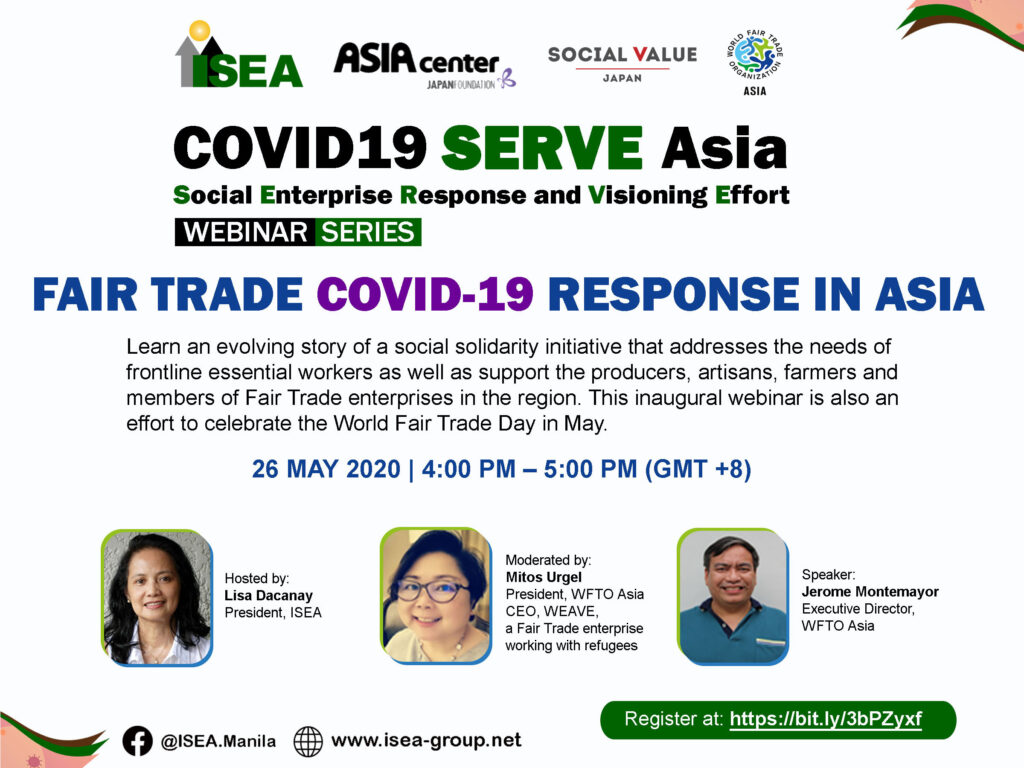
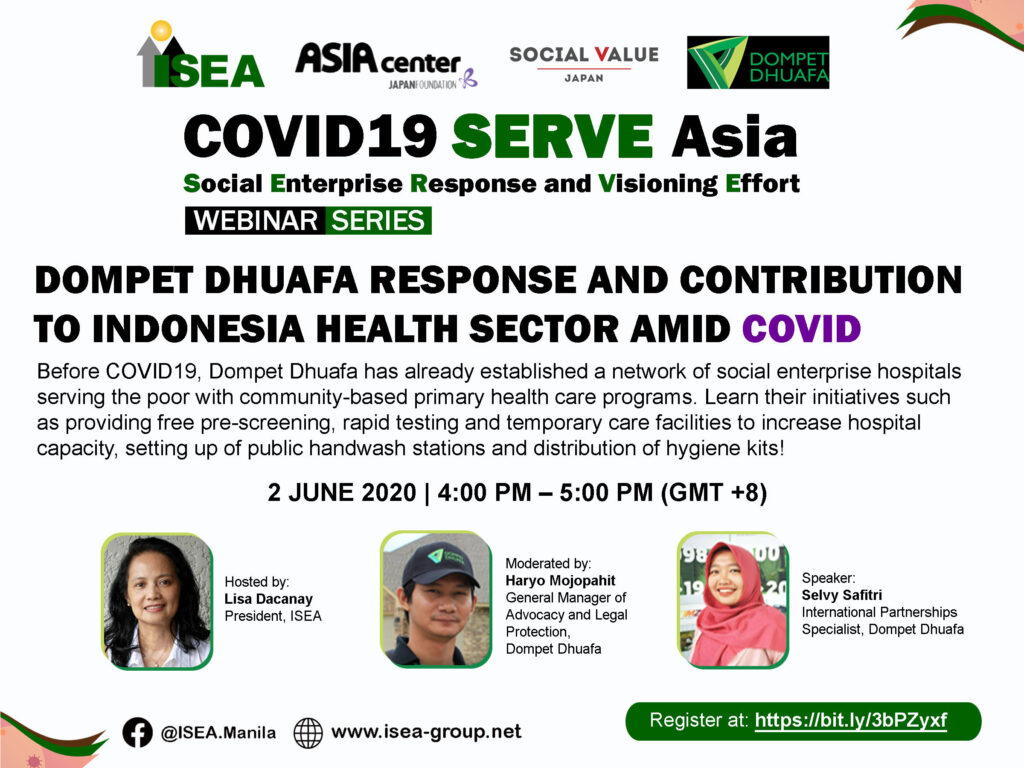
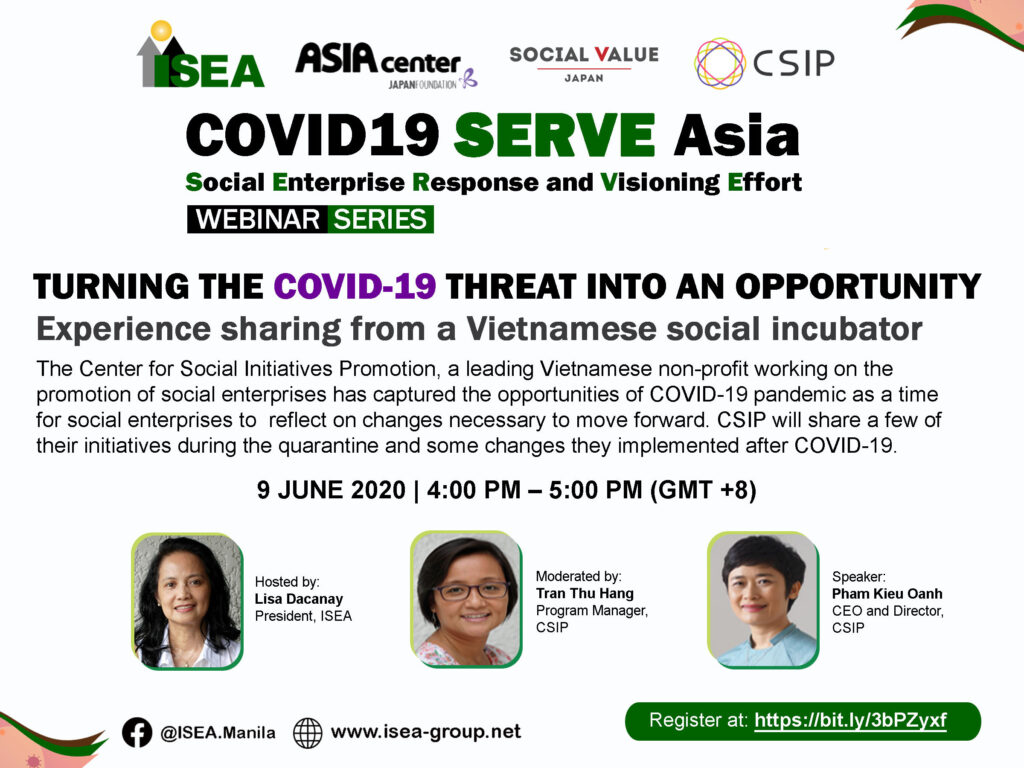
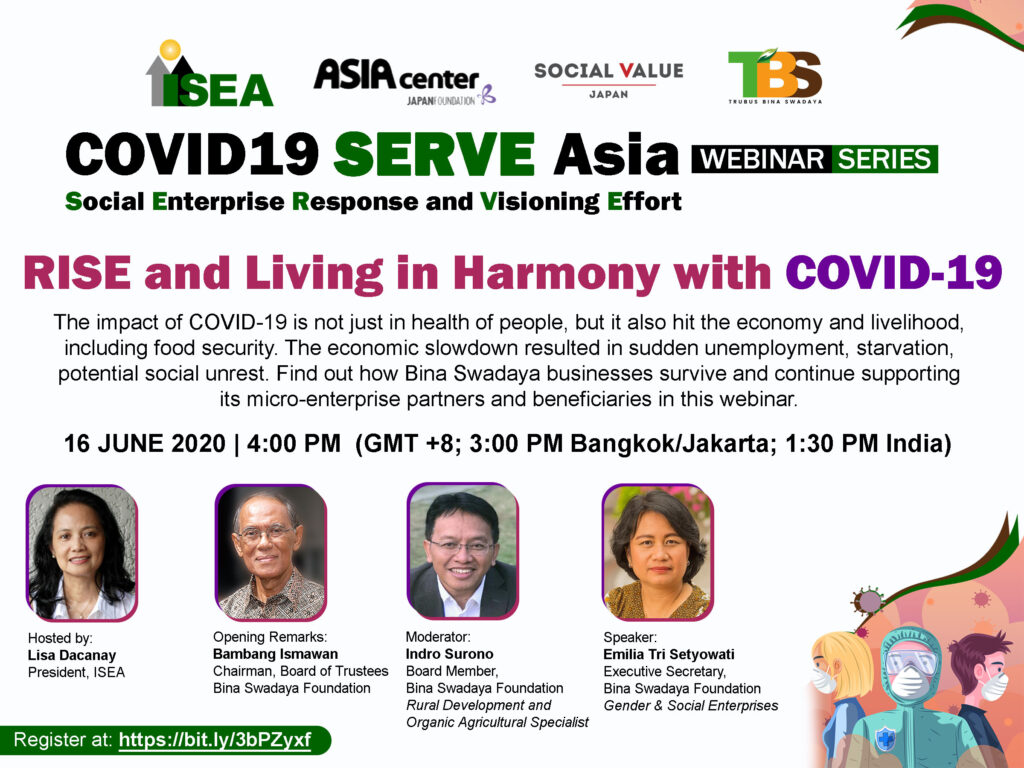
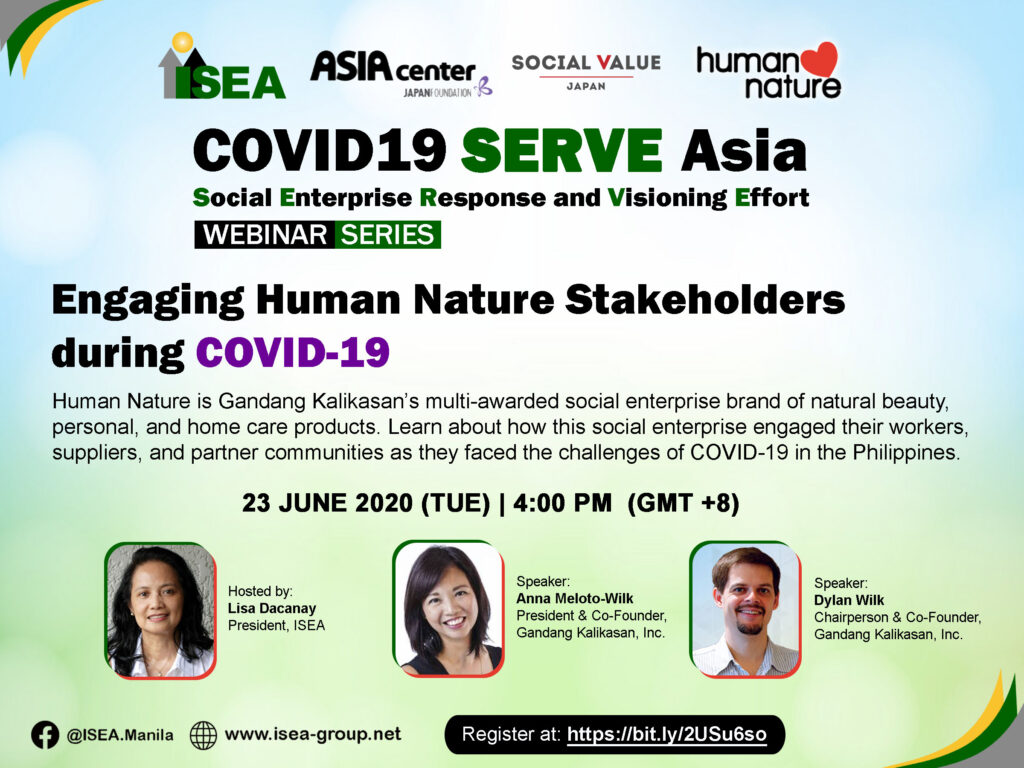
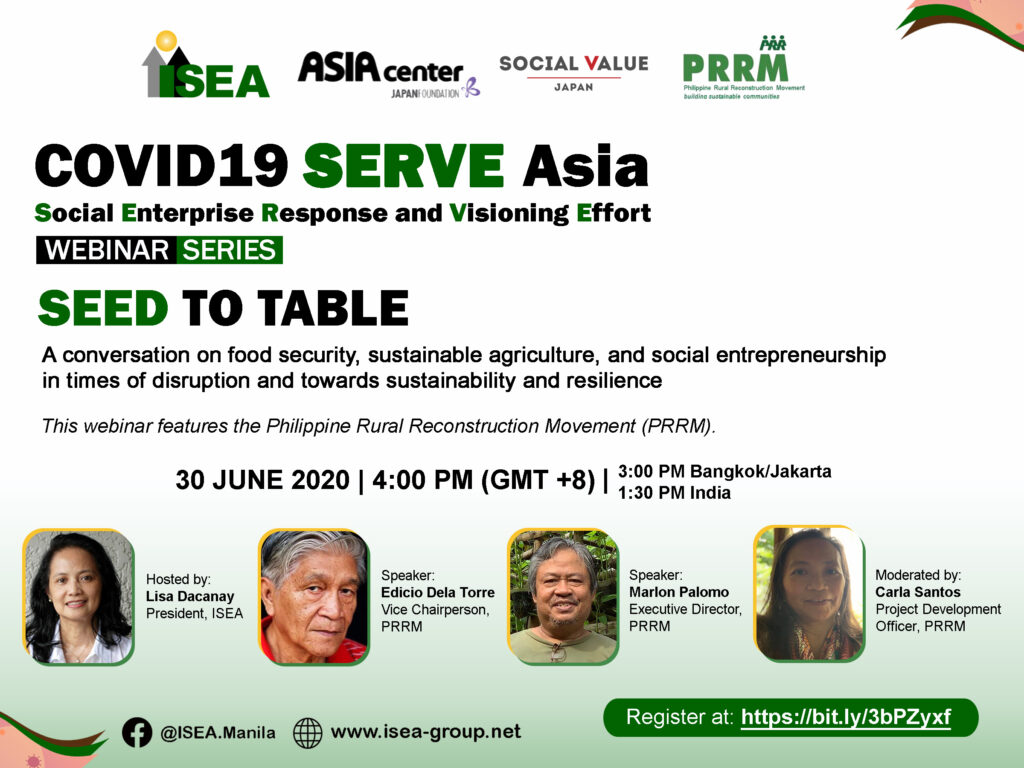
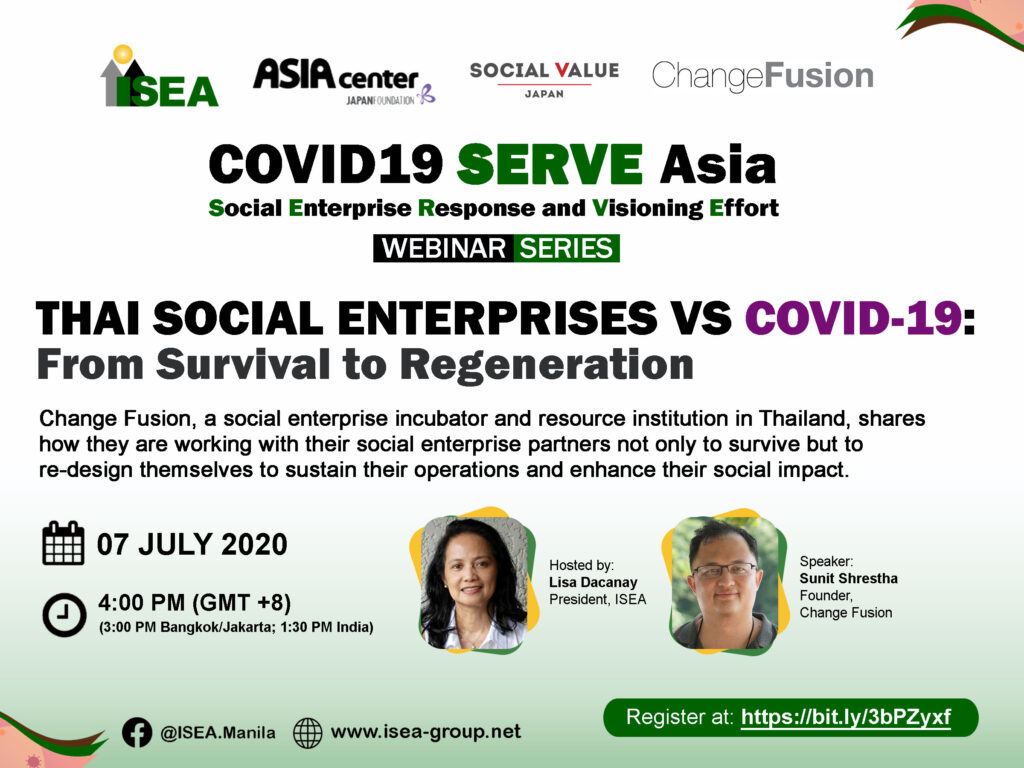
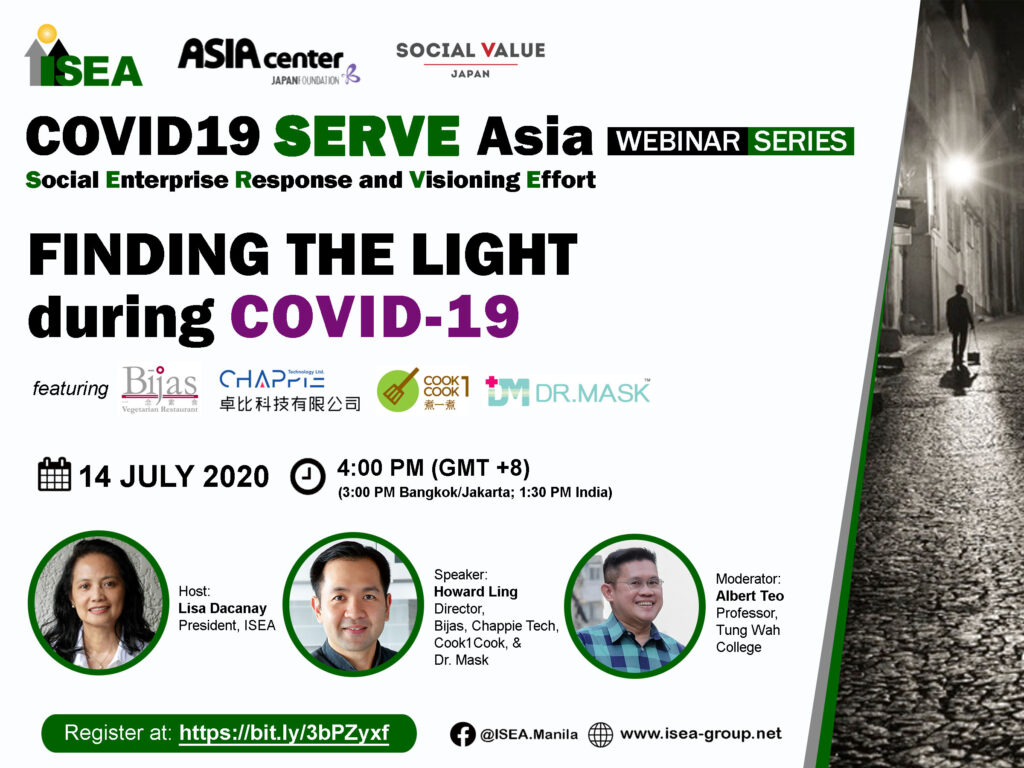
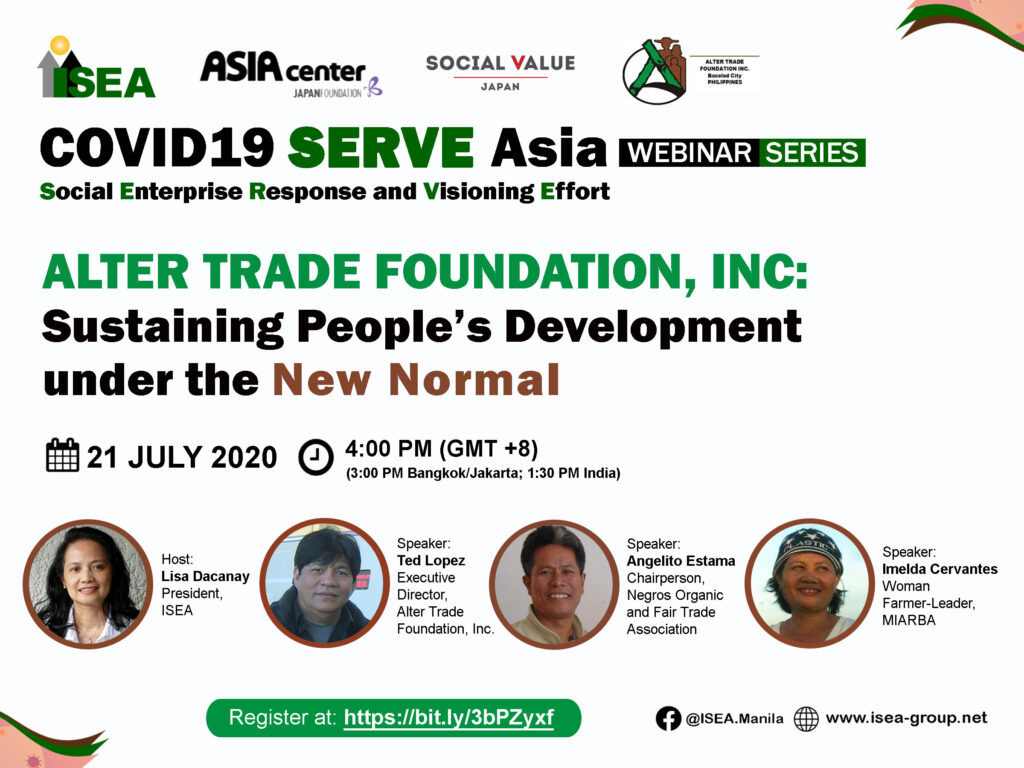
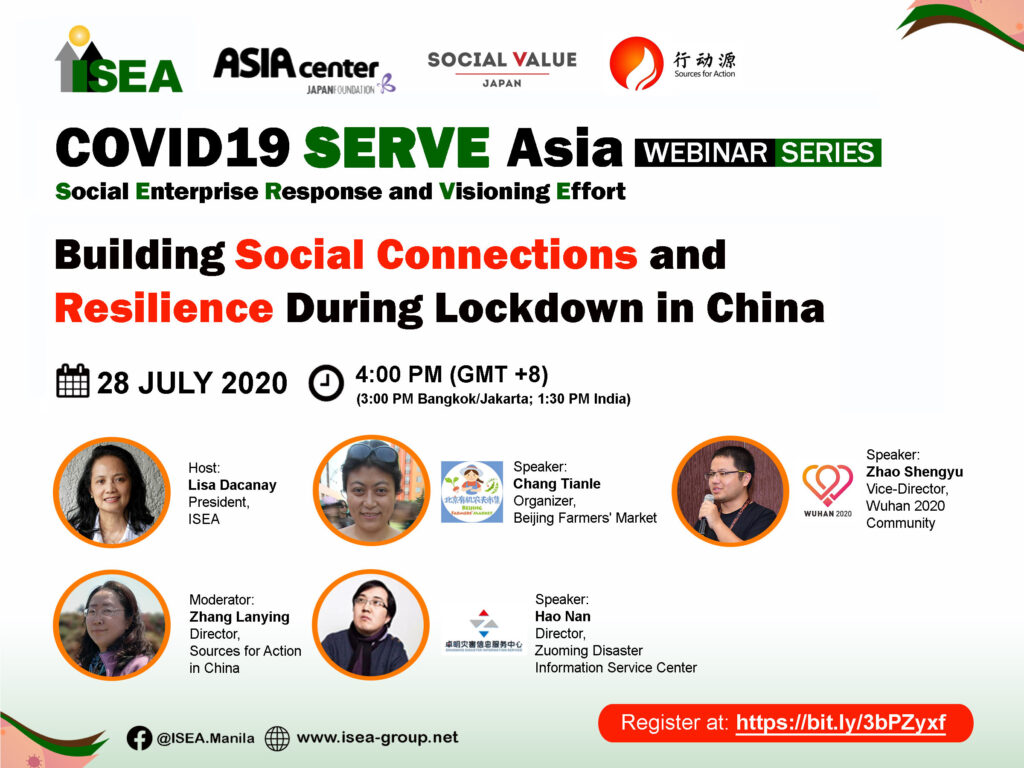
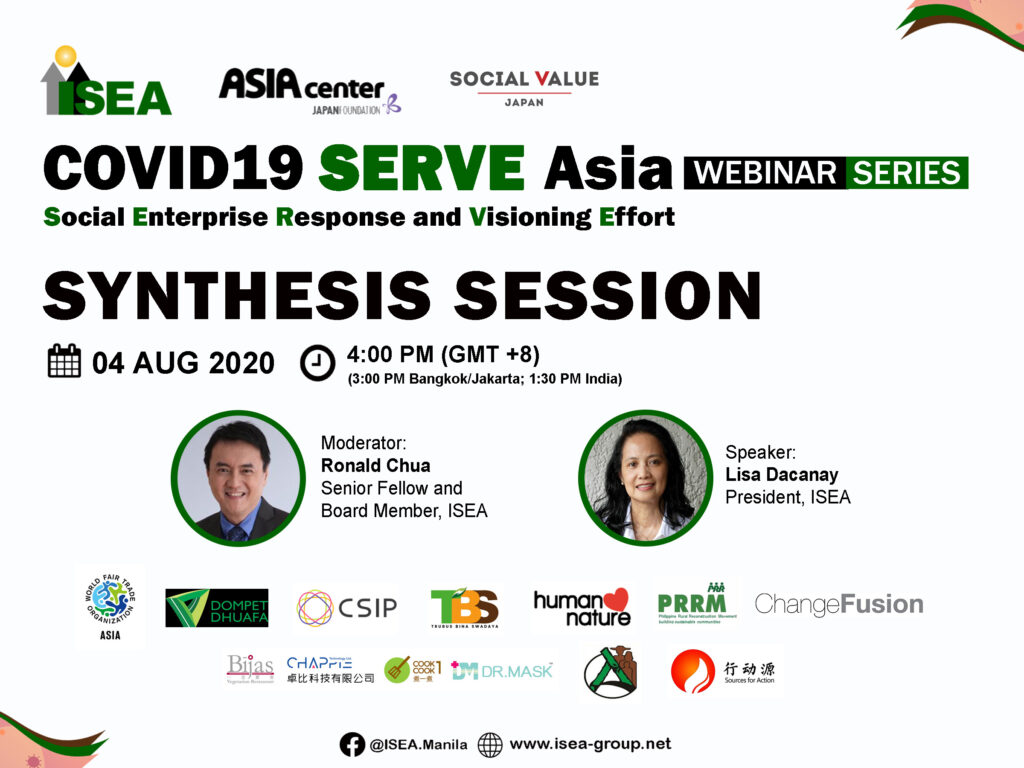
Initial Learning and Planning Process for COVID19 SERVE Asia
ISEA , in consultation with its partners and members in 9 countries in Asia, shall be discussing how COVID19 SERVE Asia would best be pursued at the regional level. In addition to SEAR in the Philippines, a rapid appraisal is being conducted by its member, the Center for Social Innovation Promotion (CSIP) in Vietnam towards developing their COVID19 response. The results of these and other in-country research efforts shall inform COVID19 SERVE Asia.
COVID19 SERVE Asia Consultations
ISEA shall be conducting on line consultations with its members and partners in at least 9 countries to generate suggestions for evolving a COVID19 SERVE Asia Agenda and Key Initiatives. This shall be focused on pursuing multi-country and regional efforts that would add value to what members and partners are already doing on their own in their respective countries. This shall culminate in an Expanded ISEA Regional Council Meeting (with Key Partners) in June 2020 to consider the agenda and come up with a plan on ways forward.
COVID19 SERVE Asia Learning Events
While consultations at the regional level will be taking place to develop and agree on a COVID19 SERVE Asia Agenda and Key Initiatives, ISEA shall facilitate the conduct of learning events. Here, various responses to COVID19 shall be shared by and among social enterprises and resource institutions in the region. This shall be facilitated through weekly on line webinars or learning events featuring a panel of presentations with an open forum. All presentations shall be uploaded in a COVID19 SERVE Asia webpage under the ISEA website, linked to the websites of participating members and partners, for sharing to a wider audience. These learning events shall also contribute to evolving and shaping COVID19 SERVE Asia.
COVID19 SERVE Asia: Beyond Initial Learning and Planning
Evaluation of Pre-COVID19 Initiatives
Before the COVID19 pandemic, the Institute for Social Entrepreneurship in Asia (ISEA) was leading an imitative to accelerate the achievement of the Sustainable Development Goals (SDGs) in Asia-Pacific. ISEA, together with its members and partners were poised to launch innovative, multi-stakeholder platforms that would nurture a vibrant sector of social enterprises engaging the poor and marginalized to create decent jobs and livelihoods, practice sustainable consumption and production, achieve zero poverty and hunger, address inequality and empower women.
Concretely, the Institute for Social Entrepreneurship in Asia (ISEA), in cooperation with the United Nations Economic and Social Commission for Asia and the Pacific (UNESCAP) and the Asia-Pacific Regional Civil Society Engagement Mechanism’s (APRCEM) Social and Community Enterprise (SCEC) Constituency were working towards launching social entrepreneurship multi-stakeholder platforms to accelerate the SDGs (SE-SDG Acceleration Platforms) around a number of themes:
- Sustainable Livelihoods and Women’s Economic Empowerment (led by ISEA in partnership with Bina Swadaya and Dompet Dhuafa in Indonesia ; and Center for Social Innovation Promotion in Vietnam);
- Sustainable Consumption and Production and Circular Economy (led by World Fair Trade Organization-Asia);
- Health for All (led by Dompet Dhuafa Indonesia) ;
- Education for Decent Work and Sustainable Development (led by Human Nature/ Philippines and Asia-Pacific Bureau for Adult Education); and
- Rural Revitalization and Youth (led by China Rural Reconstruction and Philippine Rural Reconstruction Movement).
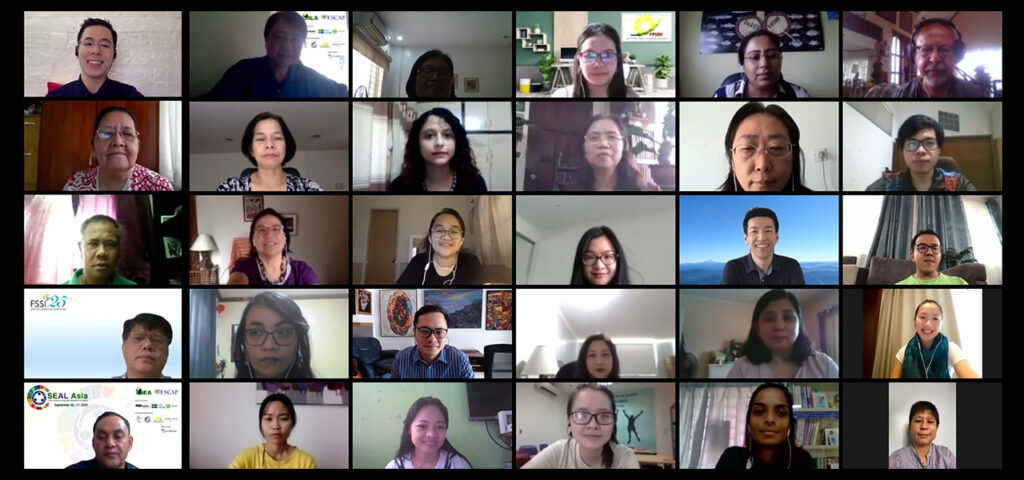
The Third Social Enterprise Advocacy and Leveraging (SEAL) Conference in Asia where these platforms were going to be launched or initiated was going to be co-convened by UNESCAP on March 19-21, 2020, timed as a pre-event to the Asia Pacific Forum on Sustainable Development on March 25-27, 2020.
These collaborative platforms were to co-create social entrepreneurship (SE)-SDG hotspots demonstrating impact around specific clusters of SDGs. They were to serve as collaborative platforms for:
- Learning and exchange of experiences and best practices among stakeholders on social entrepreneurship and cross-sectoral collaboration to accelerate the SDGs.
- Developing and projecting collective impact in accelerating the SDGs.
- Developing and advocating changes in government policy and programs supportive to the promotion of social entrepreneurship and cross-sectoral collaboration to accelerate the SDGs.
- Attracting and generating commitments and support from private donors and financial institutions as well as national and intergovernmental bodies to sustain and widen the promotion and practice of social entrepreneurship and cross-sectoral collaboration to accelerate the SDGs.
Reconfiguring Pre-COVID19 SE-SDG Acceleration Platforms
An important undertaking of COVID19 SERVE Asia during this phase is to evaluate the relevance of pursuing the development and launch of the aforementioned platforms. In doing so, ISEA shall be engaged in an action research involving members and partners using the following guide questions:
- Are the platforms still relevant given the COVID19 pandemic and its aftermath? If so, how should the platforms be reconfigured or adapted? Could the platforms be part of the social enterprise sector response to recover and build back better post COVID19? If so, how?
- Is there a need for a distinct COVID19 SERVE Asia Platform? If so, what key themes should this platform focus on? Given that food security, health for all and community resilience are already part of the original platforms conceived, is it enough to strengthen these themes in each of the original platforms conceived or should they be the core focus of a distinct COVID19 SERVE Asia platform? What key initiatives should a COVID19 SERVE Asia Platform pursue at the regional level?
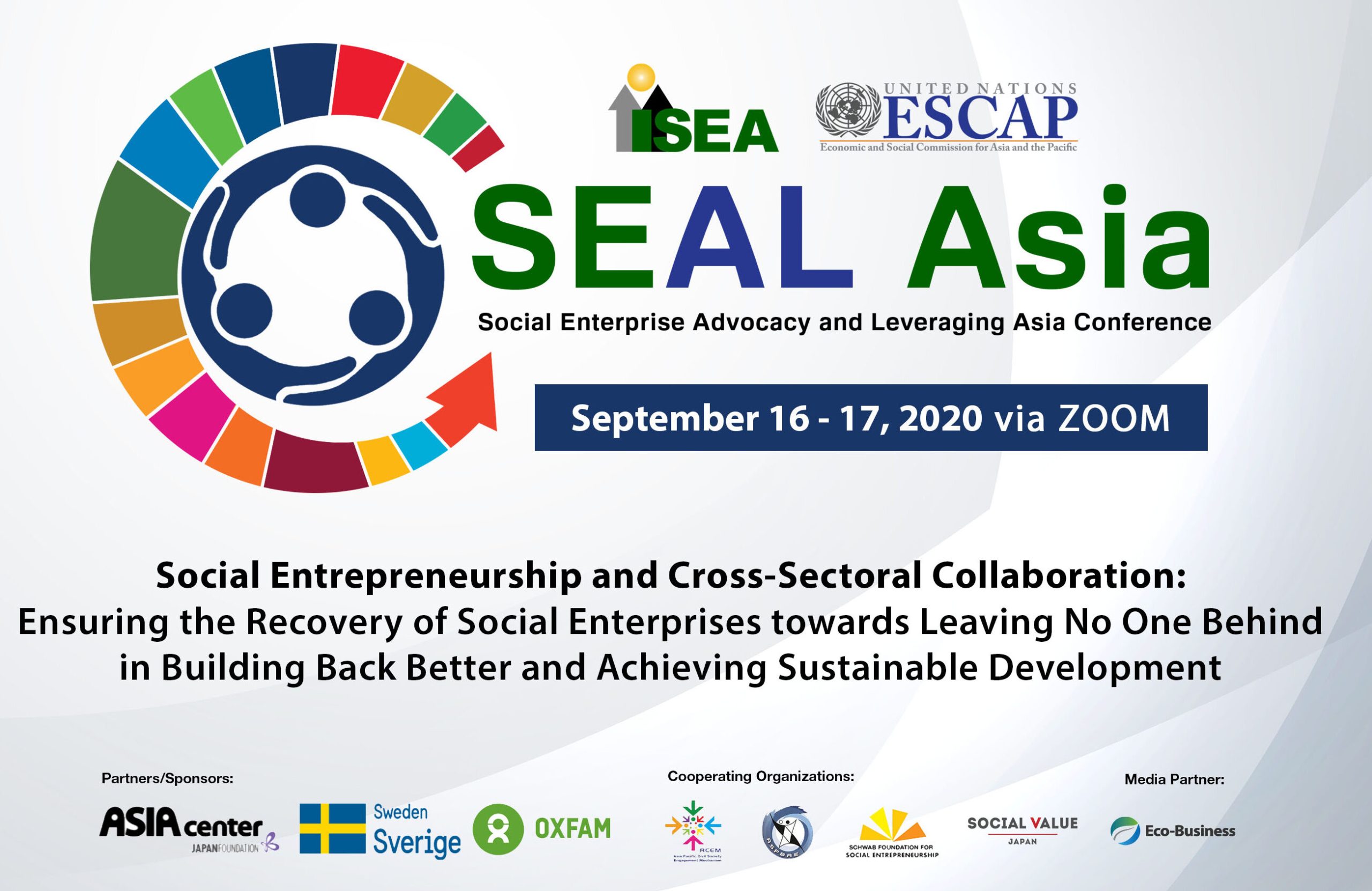
The Third Social Enterprise Advocacy and Leveraging (SEAL) Conference and ISEA Regional Assembly, timed with the Asia-Pacific Forum on Sustainable Development, that was going to launch or develop these multi-stakeholder platforms have been moved by ISEA’s Regional Council from March 19-21, 2020 to September 16-18, 2020 given the COVID19 health pandemic. Preparing for the SEAL Conference, given this new date would necessitate the aforementioned evaluation and reconfiguration process.
